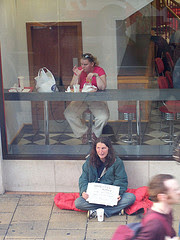I was speaking to someone I know about Abbotsford’s new recovery house policy. She told me that the intention was not to close the bad houses but to cause them to become recovery houses in fact, not just in name.
This statement contains some fundamentally mistaken beliefs.
What I consider the major failing in addressing the question of recovery houses is that the policy assumes that all those who are currently living in a recovery house in Abbotsford are there seeking recovery from their addiction (the economics of the recovery house industry and the effect of market forces will be addressed in part II). Reality is that many of those who are in a “bad” recovery house are only there so as to have a roof over their heads. These people have no real interest in getting clean, staying clean and getting on with recovery.
They have not yet reached a point where they are ready to move into sobriety and recovery. So, while you can force the houses to become bona-fide recovery houses, you cannot force the substance abusers into recovery.
The net effect will be the same whether you close the houses or force them to be legitimate places of recovery – more, a LOT more homeless on the streets of Abbotsford.
Understand that I fully support the need to clean up the recovery houses in Abbotsford so that those coming out of treatment and/or looking for a clean environment free of mind altering substances can be sure that in our city a Recovery house is a substance abuse free environment. We as citizens of Abbotsford owe a duty of care to those seeking help in overcoming substance abuse problems that require ensuring a safe environment for them.
Reality, what a concept, is that in ensuring this safe environment the city’s actions are going to displace 100 – 200 substance abusers out of their current housing and onto the streets. I say onto the streets because there are no viable housing alternatives for those abusing whatever substance they prefer.
Why do you think there are so many so-called recovery homes in Abbotsford? It is simple supply and demand, supplying demanded housing at affordable cost.
The Reality is that even with the best of intentions the net result of the city’s recovery house policy will put those 100 – 200 substance abusers on the street. The Question is why the city has ignored reality and proceeded as though there will not be any consequences of implementing their recovery house policy?
Common sense and leadership would seem to me to have demanded acknowledging the reality that the recovery house policy will have a significant effect on increasing the number of homeless on the streets of Abbotsford and taking action to address this reality before flooding the streets with more homeless bodies.
Clearbrook residents are currently screaming at City Hall about problems in their neighbourhood. The new city approach will likely close many of the recovery houses that residents are complaining about – and drive many of those in the recovery houses onto the streets in the Clearbrook area.
What then? Round ‘em up, move them out to fresh pastures in a new neighbourhood, much the same way a rancher would his herd of cattle? When the new neighbourhood starts to scream and complain loud enough, will the city perform another round-up of the homeless and drive them to new pastures in another neighbourhood and so on and so on ad infinitum?
It is time we stopped futilely dealing with social problems on a piecemeal basis that experience has shown not only fails to accomplish anything, but allows problems to worsen. We need to take a much more holistic approach, dealing with the entirety of a situation, issue or problem.
The new recovery house policy is not a solution. A solution does not merely trade one set of problems for a different set of problems, but address all the underlying facets of the problem. It does no good to take an action that will cause many of the current residents of recovery houses to leave the recovery houses …
… Unless you have also put in place policies to provide affordable housing for the newly “released to homelessness” in a manner and form that will encourage and facilitate their moving into treatment and recovery. Where are these policies and alternative housing?
We simply cannot afford the insanity of repeating past behaviours over and over hoping the outcome will be different this time and solutions magically appear.
 Usually lunch is available Sundays and Mondays, but with hunger on Holiday the fellowship of the organizations that had taken responsibility for serving lunch on those days joined hunger on Holiday.
Usually lunch is available Sundays and Mondays, but with hunger on Holiday the fellowship of the organizations that had taken responsibility for serving lunch on those days joined hunger on Holiday.